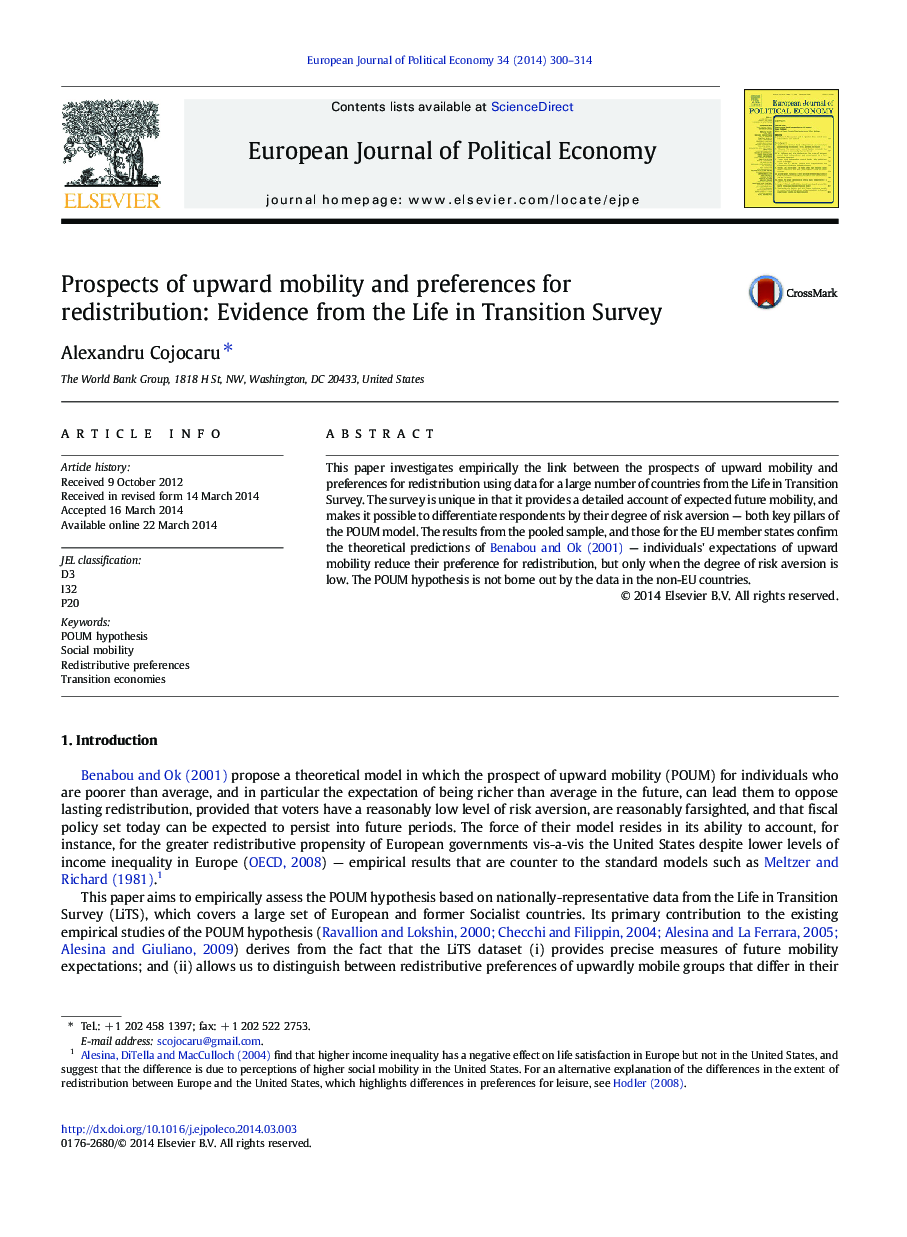| Article ID | Journal | Published Year | Pages | File Type |
|---|---|---|---|---|
| 5068106 | European Journal of Political Economy | 2014 | 15 Pages |
â¢I assess the POUM hypothesis using data from the Life in Transition Survey.â¢Data allows for precise assessments of upward mobility and risk aversion of respondents.â¢These key features of the POUM hypothesis weren't captured adequately in earlier studies.â¢I find support for the POUM hypothesis in EU countries but not outside of EU.
This paper investigates empirically the link between the prospects of upward mobility and preferences for redistribution using data for a large number of countries from the Life in Transition Survey. The survey is unique in that it provides a detailed account of expected future mobility, and makes it possible to differentiate respondents by their degree of risk aversion - both key pillars of the POUM model. The results from the pooled sample, and those for the EU member states confirm the theoretical predictions of Benabou and Ok (2001) - individuals' expectations of upward mobility reduce their preference for redistribution, but only when the degree of risk aversion is low. The POUM hypothesis is not borne out by the data in the non-EU countries.
